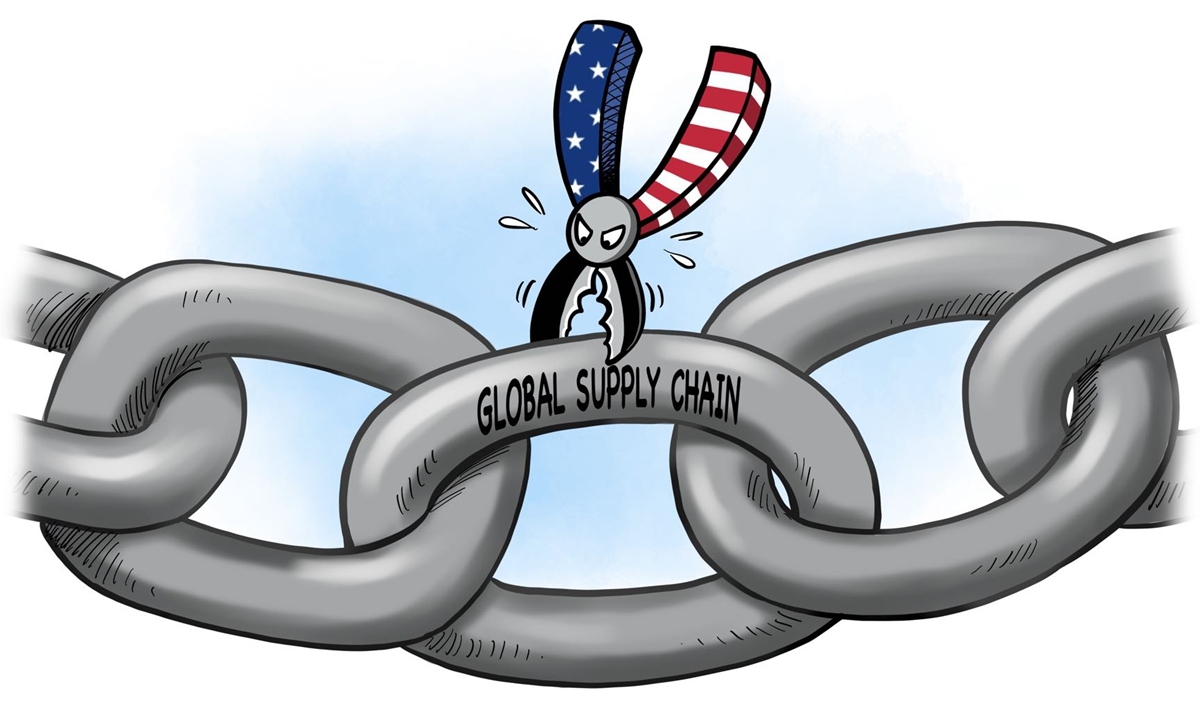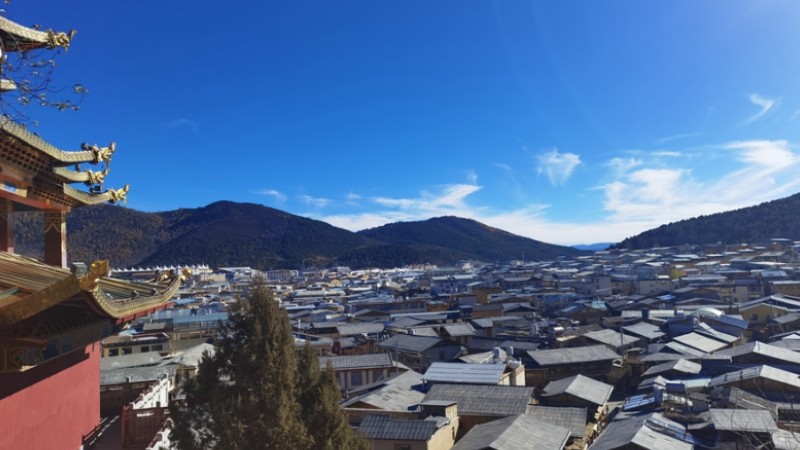GT Voice: CISCE shows China's support for stable global supply chains

Illustration: Liu Rui/GT
The first China International Supply Chain Expo (CISCE), the world's first supply chain expo at the national level, is set to be held in Beijing from November 28 to December 2. With the theme of "Connecting the World for a Shared Future," the event reflects China's responsibility as a major manufacturing power in maintaining the stability of global industry and supply chains.
Against the backdrop of geopolitical tensions, setting up a new form of cooperation to promote stable, smooth, efficient and mutually beneficial global supply and industry chains is valuable and should be cherished by the global business community.
In recent years, the US and the West have been hyping the so-called risks of China's supply chain, with some even advocating for "decoupling" from China on so-called national security grounds. Yet, the choices made by their companies clearly indicate that cooperation with China is not a risk, but rather "decoupling" is. If anything, China, as the host of the event, along with the participation of more than 500 domestic and foreign companies, as well as international organizations, demonstrates that supply chain stability, not disruption, remains a common need for the world economy.
While some Western media reports interpret the CISCE as China's attempt to "form another camp" or "passively restructure the supply chain," what they overlook is that it is impossible for the West to really exclude China from supply chains. Their underestimation of China's role in global supply chains has led to the misunderstanding of the real purpose behind the CISCE.
The past few decades saw the world economy develop a globalized pattern of the industrial division of labor, with various countries and regions closely intertwined through supply chains. But now, economic globalization has encountered serious challenges, such as trade protectionism, geopolitical tensions, and industry chain regionalization and localization, which has undermined the growth of global trade. Last month, the WTO scaled down its global merchandise trade growth forecast to 0.8 percent this year from its previous forecast of 1.7 percent.
Against this backdrop, China's hosting of the first CISCE is not only aimed at addressing its own challenges in the global industry chains, but also assuming the responsibility of maintaining global industry chain security.
China is the largest manufacturing country in the world and an indispensable part of global supply chains, which is a result of market laws and business choices.
The argument to exclude China from global supply chains, based on the so-called "de-risking" excuse, is neither realistic nor feasible as it goes against market rules and the needs of industry chain development. China's massive manufacturing industry leads to relatively low costs and high efficiency in producing various products. The mature industry chain established in China ensures competitive prices and guarantees stable quality. This is also why the Western push for "decoupling" has often resulted in Chinese industry chains extending to other countries, with the origins of the components remaining largely in China.
Moreover, China's industry chain is not just about its manufacturing capacity, it also encompasses its technological innovation capability. Its rapid development in high-tech industries and green sectors has provided global companies with enormous development opportunities and market space, facilitating global market exploration and driving the energy transition.
In this sense, the stability of China's industry chain actually contributes to the security of global industry chains, rather than bringing risks to those supply chains as some Western public opinion suggests. Despite the serious geopolitical challenges faced by the supply chain environment, China's determination to further integrate its companies into global value chains to maintain global economic stability has not changed.
Photos
Related Stories
- E China's county constructs industrial, supply chains to boost economy
- Many US companies to attend first China International Supply Chain Expo
- Chinese premier to attend CISCE opening ceremony, deliver keynote speech
- Supply chain expo to attract major MNCs
- 1st China International Supply Chain Expo to kick off in Beijing
Copyright © 2023 People's Daily Online. All Rights Reserved.









